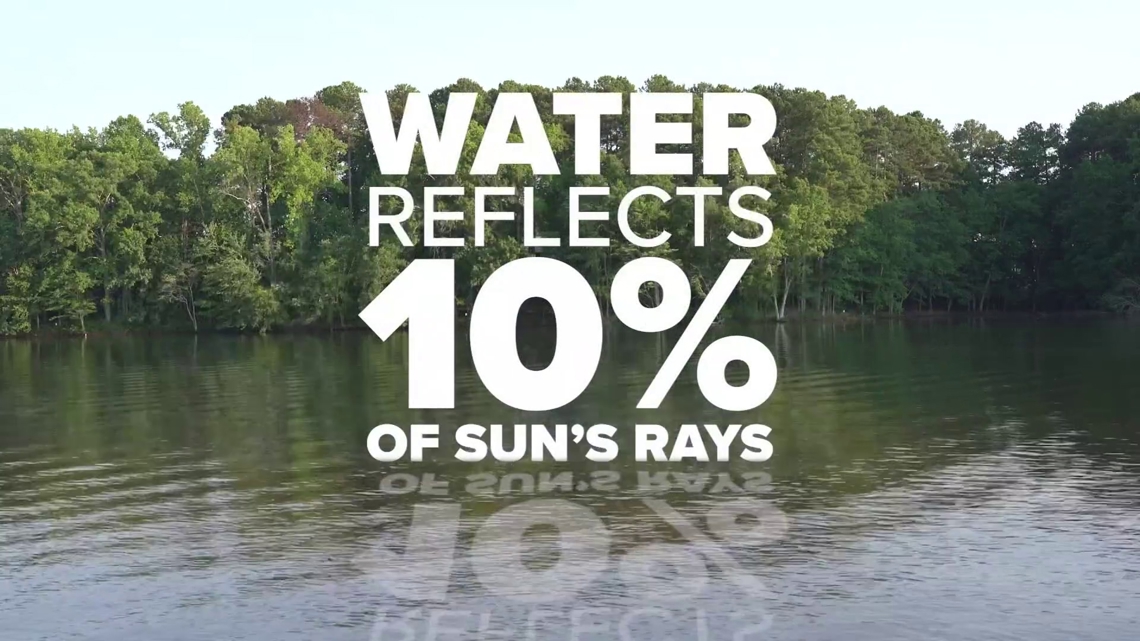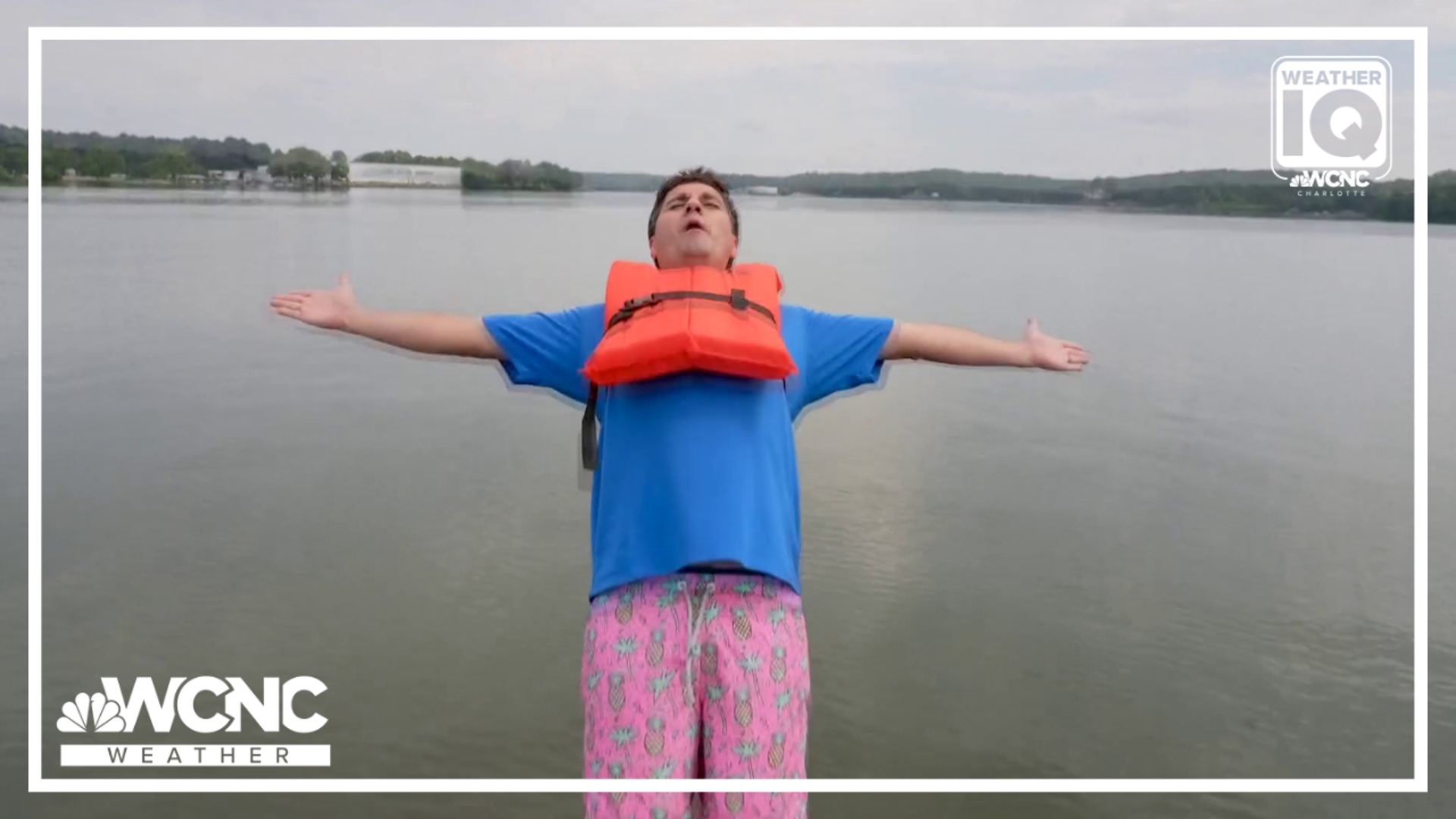LAKE WYLIE, S.C. — The weather impacts everything you do outside, including boating. Let's raise that Weather IQ.
Meteorologist Chris Mulcahy went out to Freedom Boat club in Lake Wylie and met up with Captain Ben and a crew to learn about how weather can hinder any boating day.
Weather and boating
When you're the captain of your ship like Captain Ben, you need to be Weather Aware when you are out on the water.
"You want to make sure you are watching your radar at all times when you are out here," Captain Ben, an instructor and boating captain at Freedom Boat Club, said. "You know things can go bad pretty quickly. Keep your eyes on the sky and keep an eye on your phone, look at that radar app."
The WCNC Charlotte app is a great tool to bring with you out on the boat because it has live radar, but try not to drop your phone.
For the latest weather alerts, download the WCNC Charlotte mobile app and enable push notifications.
Sunscreen
When you are having a blast on the boat you may forget one crucial thing. You're more likely to burn on the water than beached on land, so make sure to have plenty of sunscreen.
Why is that?
The water reflects about 10% of the sun's rays. It's called albedo; that's the reflectivity of surfaces that can reflect that sun right back at you.


The sun can also reflect off the metal and other shinier surfaces of the boat that can add to the burn threat as well.
Don't underestimate a cloudy day, though. It can burn you just as much.
Storm threats
Chris Mulcahy said that early on in his career, he saw one severe thunderstorm develop that became destructive, producing winds over 80 mph, and even blew the boats from their docks.
Lightning is attracted to water as well, making you more of a target. So whenever you hear thunder, the best option is to race for the docks.
Winds
Captain Ben said if you can feel the wind, it's going to affect how the boat drives.
"You can notice a difference with just 5 to 10 mph of wind," he said. "You know, you really can't feel anything below 5 mph, but if you can feel it, it is affecting the way your boat is driving."
- When winds are over 25 mph it is considered too windy for a day out on the boat.
- Winds over 35 mph are an enhanced risk for smaller boats to capsize.
- Boats with a high hulls or flybridges will almost act as a sail which can catch a lot of wind.
- Captain Ben said when you need to drive through a high wake, you need to slow down and approach the wake at a 45° angle. Once you cross the wake, re-accelerate.
The effects of the wind on different boats
Some boats handle the wind much better than others.
Boats that have very high hulls and/or big flybridges will be affected by the wind a lot more than boats that don’t. This is because the surface area on these boats will almost act as a sail which will catch a lot of the wind causing the boat to move accordingly.
RELATED: Weather IQ: What causes wind?
The most important thing is to have fun, while being safe. Of course, make sure you know what the weather is going to do. Lastly, when there is a drought or a long period without rain, especially during the summer, the lake levels could be lower, so look out for sand bars. These are marked off with danger buoys on most lakes, such as Lake Wylie.
Contact Chris Mulcahy at cmulcahy@wcnc.com and follow him on Facebook, X, Instagram and TikTok.

